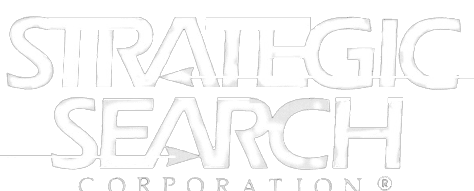By Scott Sargis
Published In The Chicago Tribune
May 1, 2001
It’s been a job seeker’s market for the last five years, but wow have times changed.
We’ve gone from watching companies offer recruiting gimmicks such as BMW Z3s to handing out mountains of pink slips. Employers are certainly in the driver’s seat now. Gone are the days when techies could slide through job interviews with minimal effort. Interviewing skills really do matter.
My 15 years of experience as a recruiter of technical talent has shown me that the average candidates for technical and scientific jobs fail to put their best foot forward during interviews. Unfortunately, no expert system has been developed to measure with precision the best prospect for a given job, and that leaves the whole hiring process hinging on what amounts to a sales and marketing presentation. The best candidate is not always the one who gets the job; usually the post goes to the person who delivers the best performance during the interview.
Few tech-types are trained in sales, but it’s time for them to consider honing those skills. When it comes to a job interview, one needs to be the best sales representative possible.
The company for which I work commissioned a study to uncover the best traits of sale representatives in closing deals.
We aimed to determine which sales behaviors had the most impact and which behaviors could be replicated most easily by non-sales types so that we could create a standardized, easy-to-use exercise for our technical and scientific candidates. We called our result “The Real Benefit Exercise.”
The exercise has three steps:
- 1. Get a memo pad small enough to carry with you everywhere, and jot down all of your quantitative accomplishments for a period of no less than two days. You’ll be tempted to move on to step two after only one hour, but don’t. To truly capture all of your best accomplishments, you need to stick with this. As you know, creativity happens as a flash, and it will be when you least expect it that you recall an accomplishment from five years ago that you haven’t given any thought to for a while. Examples of quantitative accomplishments are awards, commercialized new product ideas, cost savings to your employer, patents, the resolution of difficult problems and experiences specifically related to the job you want. Remember: You are trying to capture quantitative, not qualitative (e.g. “I have good people skills” or “I am a team player”) information. Our research shows that those accomplishments carry more weight with prospective employers.
- 2. Take the list you’ve devised and rank your items in order of importance so that they are specifically tailored for the job you want. Be brutal about making appropriate changes because one list isn’t right for all jobs. Then try to memorize your 10 most important accomplishments.
- 3. Make your mantra, “Sell, sell, sell.” When an interviewer raises a topic that relates to your quantitative accomplishments, seize the moment and sell your background. Use phrases – “sales bridges,” they’re called – such as, “I’m glad you brought that up because” or “That reminds me of the time when.” Bridges come in handy because they’ll give you a few seconds to pull together your thoughts. Practicing transitioning from potential interview questions to your answers is imperative. Really, it is. Ask a friend to run you through the wringer. It’s just common sense that the rougher you are on yourself in practice, the easier the actual interview will be. Our research also showed that this exercise is governed by a ratio of 10:1, meaning that if you practice the bridge-and-answer drill 10 times, you’ll be more likely to use one during an interview. Practice them 50 times, and you may use five.
Believe it or not, these things are what the most successful sales representatives do to close deals. Take them seriously and try them out, and you’ll land your next job — a major accomplishment in this tight labor market.



